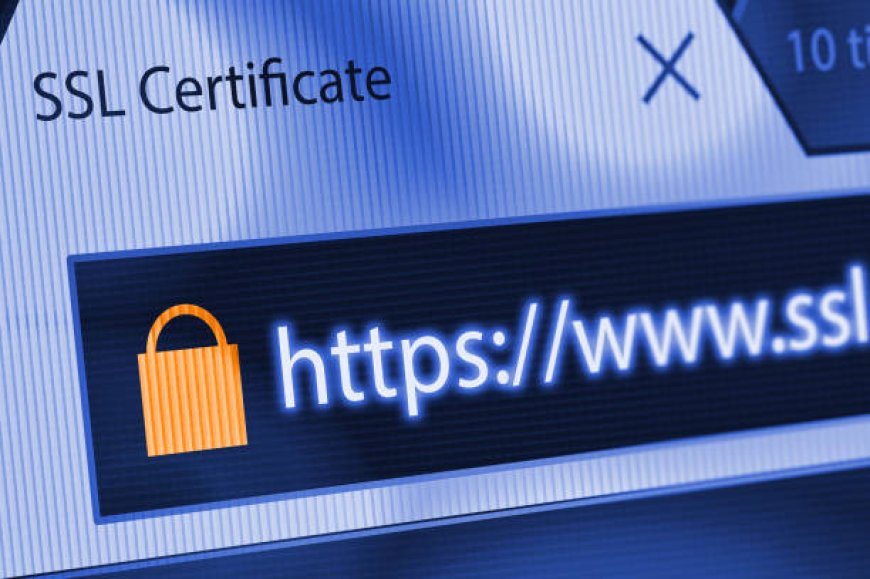The Importance of SSL Certificates: How They Enhance Web Security?
An SSL certificate enhances the security of your website by protecting user data. In this article, we explore what SSL certificates are and why they are important.

Web security is becoming increasingly important as we rely more on the internet for daily activities. In every online transaction, user data is at risk, which is why SSL (Secure Socket Layer) certificates are an essential tool for ensuring website security. But what exactly is an SSL certificate, and why is it so crucial? In this article, we'll explore the role of SSL certificates in web security and the benefits they provide.
What is an SSL Certificate?
SSL stands for Secure Socket Layer, a protocol that encrypts data transmitted over the internet to enhance security. By adding an SSL certificate to your website, you encrypt the communication between users and your site, ensuring that data is transmitted securely.
A website with an SSL certificate starts with HTTPS (HyperText Transfer Protocol Secure) instead of HTTP, signaling that the connection is secure. Without an SSL certificate, browsers often show a "Not Secure" warning, which can erode user trust in the website.
Benefits of SSL Certificates
-
Data Security: SSL certificates encrypt data transmitted between your website and its users, protecting sensitive information such as payment details, personal data, and passwords from hackers and third parties.
-
Positive Impact on SEO: Google considers SSL certificates a factor for ranking websites, meaning secure sites are likely to rank higher in search results. Therefore, having an SSL certificate is not just about security; it also positively affects your SEO performance.
-
User Trust: When users see that your site is secure, they are more likely to trust it. For e-commerce websites, building trust is critical, and having an SSL certificate reassures visitors that their data is protected.
-
Data Integrity: SSL ensures that the data sent between the user and your site cannot be altered or corrupted during transmission. This guarantees that the information remains intact and authentic.
-
Compliance with Legal Requirements: In some countries, data protection laws require the use of SSL certificates to safeguard user information. Using an SSL certificate helps meet these legal requirements, ensuring compliance with data protection regulations.
How Does an SSL Certificate Work?
SSL certificates work by encrypting the communication between the server and the user. The process typically works as follows:
-
User and Server Communication: When a user visits a website, the browser sends a request to the server to establish a secure connection via SSL.
-
Key Exchange Between the Server and Browser: The server sends a digital certificate for authentication, which the browser checks and verifies.
-
Encryption and Data Transfer: If the certificate is valid, the browser and server establish an encrypted connection, allowing secure data transfer between them.
What to Consider When Choosing an SSL Certificate?
SSL certificates come in different types and security levels. When choosing one, consider the following factors:
-
Certificate Type: There are various types of SSL certificates such as Domain Validation (DV), Organization Validation (OV), and Extended Validation (EV). EV certificates offer the highest level of security.
-
Certificate Provider: Choose a trusted and well-established SSL certificate provider for enhanced security.
-
Compatibility: Ensure that the SSL certificate is compatible with all modern browsers.
Conclusion
SSL certificates are essential for ensuring web security and protecting user data. They not only provide a secure connection but also improve SEO rankings and build user trust. Adding an SSL certificate to your website is the easiest way to enhance security and ensure that your users' data is protected. If your website doesn’t have an SSL certificate yet, now is the perfect time to get one!
What's Your Reaction?
 Like
0
Like
0
 Dislike
0
Dislike
0
 Love
0
Love
0
 Funny
0
Funny
0
 Angry
0
Angry
0
 Sad
0
Sad
0
 Wow
0
Wow
0











